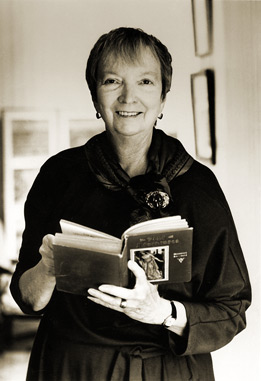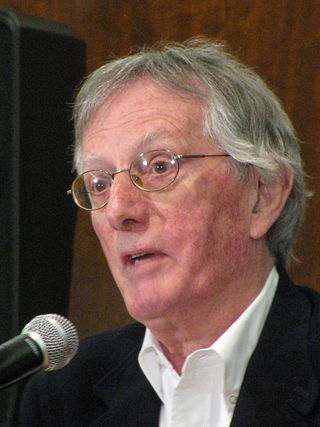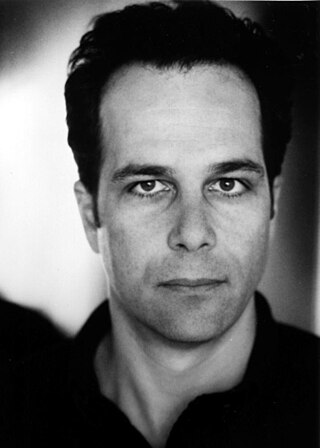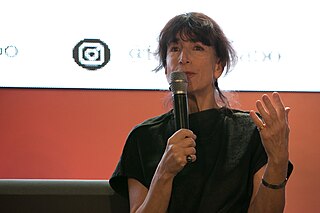
Elizabeth Bishop was an American poet and short-story writer. She was Consultant in Poetry to the Library of Congress from 1949 to 1950, the Pulitzer Prize winner for Poetry in 1956, the National Book Award winner in 1970, and the recipient of the Neustadt International Prize for Literature in 1976. Dwight Garner argued in 2018 that she was perhaps "the most purely gifted poet of the 20th century". She was also a painter, and her poetry is noted for its careful attention to detail; Ernest Hilbert wrote “Bishop’s poetics is one distinguished by tranquil observation, craft-like accuracy, care for the small things of the world, a miniaturist’s discretion and attention."

Madeleine L'Engle was an American writer of fiction, non-fiction, poetry, and young adult fiction, including A Wrinkle in Time and its sequels: A Wind in the Door, A Swiftly Tilting Planet, Many Waters, and An Acceptable Time. Her works reflect both her Christian faith and her strong interest in modern science.

Edmund Wilson Jr. was an American writer, literary critic and journalist. He is widely regarded as one of the most important literary critics of the 20th century. Wilson began his career as a journalist, writing for publications such as Vanity Fair and The New Yorker. He helped to edit The New Republic, served as chief book critic for The New Yorker, and was a frequent contributor to The New York Review of Books.
Frederick Seidel is an American poet.

Alice McDermott is an American writer and university professor. She is the author of nine novels and a collection of essays. For her 1998 novel Charming Billy she won an American Book Award and the U.S. National Book Award for Fiction and was a finalist for the International Dublin Literary Award and the Orange Prize. That Night, At Weddings and Wakes, and After This were finalists for the Pulitzer Prize. Her most recent novel, Absolution was awarded the Mark Twain American Voice in Literature Award.

Charles Wright is an American poet. He shared the National Book Award in 1983 for Country Music: Selected Early Poems and won the Pulitzer Prize in 1998 for Black Zodiac. From 2014 to 2015, he served as the 20th Poet Laureate of the United States.

Marilynne Summers Robinson is an American novelist and essayist. Across her writing career, Robinson has received numerous awards, including the Pulitzer Prize for Fiction in 2005, National Humanities Medal in 2012, and the 2016 Library of Congress Prize for American Fiction. In 2016, Robinson was named in Time magazine's list of 100 most influential people. Robinson began teaching at the Iowa Writers' Workshop in 1991 and retired in the spring of 2016.

Alex Ross is an American music critic and author who specializes in classical music. Ross has been a staff member of The New Yorker magazine since 1996. His extensive writings include performance and record reviews, industry updates, cultural commentary, and historical narratives in the realm of classical music. He has written three well-received books: The Rest Is Noise: Listening to the Twentieth Century (2007), Listen to This (2011), and Wagnerism: Art and Politics in the Shadow of Music (2020).

Philip Gourevitch, an American author and journalist, is a longtime staff writer for The New Yorker and a former editor of The Paris Review.
Katharine Weber is an American novelist and nonfiction writer. She has taught fiction and nonfiction writing at Yale University, Goucher College, the Paris Writers Workshop and elsewhere. She held the Visiting Richard L. Thomas Chair in Creative Writing at Kenyon College from 2012 to 2019.

Sloane Crosley is an American writer living in New York City known for her humorous essays, which are often collected into books like I Was Told There'd Be Cake, How Did You Get This Number, and Look Alive Out There.

Vivian Gornick is an American radical feminist critic, journalist, essayist, and memoirist.

Eliza Griswold is a Pulitzer Prize–winning American journalist and poet. Griswold is currently a contributing writer to The New Yorker and a Distinguished Writer in Residence at New York University. She is the author of Amity and Prosperity: One Family and the Fracturing of America, which was awarded the Pulitzer Prize for general nonfiction and the Ridenhour Book Prize in 2019, and which was a 2018 New York Times Notable Book and a Times Critics' Pick. Griswold was a fellow at the New America Foundation from 2008 to 2010 and won a 2010 Rome Prize from the American Academy of Arts and Letters. She is a former Nieman Fellow and a current Berggruen Fellow at Harvard Divinity School, and has been published in The New Yorker, Harper's Magazine, and the New York Times Magazine.
Hill & Wang is an American book publishing company focused on American history, world history, and politics. It is a division of Farrar, Straus and Giroux.
Janice Erlbaum is an American author. She is the author of two memoirs, GirlBomb: A Halfway Homeless Memoir and Have You Found Her: A Memoir., and one novel for adults, "I, Liar." She is also the author of two books for tweens, Lucky Little Things and Let Me Fix That for You. Her poetry and prose have been featured in anthologies including Aloud: Voices from the Nuyorican Poets Café, The Bust Guide to the New Girl Order, The Best American Erotic Poems From 1800 to the Present, and Verses that Hurt.

Evan Lionel Richard Osnos is an American journalist and author. He has been a staff writer at The New Yorker since 2008, best known for his coverage of politics and foreign affairs, in the United States and China. His 2014 book, Age of Ambition: Chasing Fortune, Truth, and Faith in the New China, won the National Book Award for nonfiction.

Phillip M. Hoose is an American writer of books, essays, stories, songs, and articles. His first published works were written for adults, but he turned his attention to children and young adults to keep up with his daughters. His work has been well received and honored more than once by the children's literature community. He won the Boston Globe–Horn Book Award, Nonfiction, for The Race to Save the Lord God Bird (2004), and the National Book Award, Young People's Literature, for Claudette Colvin (2009).
Maureen N. McLane is an American poet, critic, and professor. She received the National Book Critics Circle Award.

Catherine Lacey is an American writer.

Judith Thurman is an American writer, biographer, and critic. She is the recipient of the 1983 National Book Award for Nonfiction for her biography Isak Dinesen: The Life of a Storyteller. Her book Secrets of the Flesh: A Life of Colette was a finalist for the 1999 nonfiction National Book Award. In 2016, she received the medal of Chevalier of the Order of Arts and Letters.














